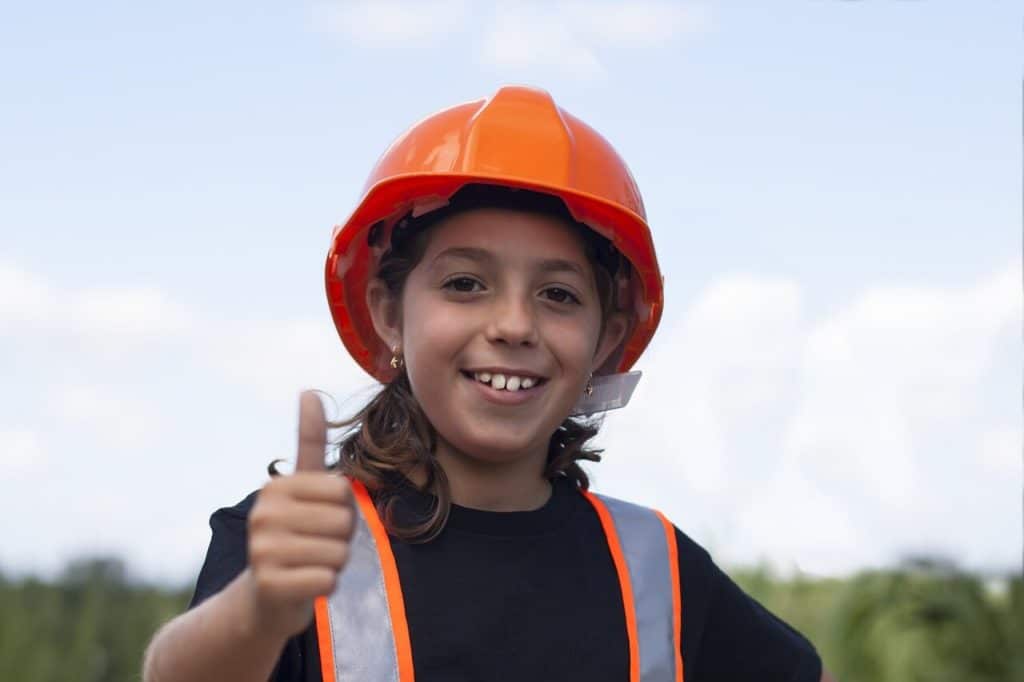DBS Checks & Criminal Record Checks Register Now Care Check...
Read MoreDBS Checks & Criminal Record Checks
Care Check is a leading umbrella body for the Disclosure and Barring Service and has been named one of the top 8 providers for criminal record checks in the UK.
Sign up to our newsletter
"*" indicates required fields
Get in touch with us

Child Safeguarding Policy UK | School Holiday Protection
Since the late 1970s, the UK government has required all organizations that work with children to have a child safeguarding policy in place. This policy is designed to protect children from abuse and neglect while they are in the care of these organizations. The policy applies to both paid employees and volunteers and sets out clear guidelines for reporting any suspected abuse or neglect.
In this post, we’ll take a closer look at what a child safeguarding policy is, and outline some of the key components that it should include. We’ll also discuss why it’s so important for organizations to have this type of policy in place.
What Is A Child Safeguarding Policy?
Children’s safety is of paramount importance and remains a pertinent issue in today’s society. To ensure children’s well-being is protected within the UK, we have Child Safeguarding Policies. A child safeguarding policy is a document that explains what a specific organisation will do to keep children safe in the workplace.
But what exactly is involved in producing a Child Safeguarding Policy and what role do DBS checks have in this process?
What is the Purpose of Safeguarding?
Safeguarding exists to promote the welfare of children and young people and to prevent any harm or abuse in relation to their health and development. According to the NSPCC, safeguarding is a broad term that aims to ensure that minors have the best outcomes.
What Should the Child Safeguarding Policy Include?
The Child Safeguarding Policy should state the measures the relevant organisation shall take to enforce child protection and prevent young people from coming to any harm.
It should also:
- describe the aims of the organisation and the overall purpose of the policy.
- explain what will be done in the event of any concerns for children’s well-being arising.
- outline any procedures that will be put in place to safeguard children against abuse.
- state the legislation and guidance that influences the policy itself.
- clarify who is protected by the policy and who must adhere to it.
- address the potential additional needs of those with disabilities or from ethnic minorities.
- provide the date the policy will come into effect from and when the first review is scheduled.
Once it is written, you must ensure that the safeguarding policy is regularly reviewed and that all staff, both paid and voluntary, are made aware of any amendments to the policy. It also needs to be publicly accessible, so that anybody can view it – not just employees but also any clients, parents or even other external individuals.
Who Do Child Safeguarding Policies Protect?
These policies apply to all children and vulnerable young adults and grant equal child protection to everyone who is under 18. This is the case regardless of a minor’s exact age, religion, race or other factors which should not be grounds for discrimination.
Who Needs To Adhere To A Child Safeguarding Policy?
The policy has wide application, as it needs to be followed by all organisations who work with, or come into contact with, children.
Whilst the guidelines apply to teachers and tutors of children of all ages, they also affect many other working individuals who may come into contact with children in other working capacities.
According to the Department for Education (DfE), organisations that need to abide by Child Safeguarding Policies include, but are not limited to, the NHS, charities and local authorities, and district councils.
DBS Checks & Criminal Record Checks
How Do DBS Checks Relate To Child Safeguarding Policies?
Under Section 11 of the Children Act 2004, all organisations that need to have a Child Safeguarding Policy in place should ensure all their employees are checked for a criminal record.
According to the Protections of Freedoms Act 2012, there is a legal duty on any organisation whose employees work with vulnerable people in a regulated context, to make sure that none of their staff is barred from working with children.
DBS checks are there to make sure that anyone who works with children has a suitable background for being in contact with young people.
If your staff and volunteers are in a position of trust with children or young people, it is very important that you take the necessary steps to safeguard the minors they work with.
One thing you should therefore do is make sure that your staff are regularly checked for any criminal activity or background that could pose a risk or bring harm to the individuals they are in contact with.
Do you need to organise a criminal background check for your staff? Or are you unsure of whether this would be required for your company or charity? Contact Care Check today to find out more about our comprehensive DBS and CRB checks, or register your organisation here.
Safeguarding Children During The School Holidays
Every couple of months, commuters notice that the roads are quieter, as parents spend the school holidays with their kids. While the majority of families enjoy a well-deserved break, it can be particularly distressing for children coming out of a structured, safe and secure school environment. The school holidays often put a lot of stress on families – especially those experiencing food poverty, childcare problems or financial issues. Statistics show:
- There were 16,939 child cruelty offences recorded in 2017/2018, up 52% from the 7,965 recorded in 2012/2013.
- 3 million children will experience food insecurity, hunger and malnourishment during the summer holidays.
- The NSPCC received 5,737 calls and emails to over the last year about children being home alone- a third of which happened from July to September.
- Children witness three-quarters of abusive incidents when their parents/carers are in relationships where there’s domestic abuse and violence.
- FGM (Female Genital Mutilation) is hugely under-reported but the number of girls identified as victims or being at risk has more than doubled in the last year.
- During summer, 65,000 British girls under the age of 15 are ‘cut’ as part of a tradition.
- There were more than 1,000 cases of forced marriage in the UK in 2017.
Every responsible guardian has an ethical and moral obligation to keep children, young people and vulnerable adults safe. When recruiting for a role that requires individuals to work alongside children or vulnerable adults, the prospective employee will need to undergo a basic disclosure check.
Whether you’re recruiting someone to be a part of the Neighbourhood Watch Network, a childminder or a summer camp or club leader, it is your responsibility to ensure that procedures are put in place to protect children.
The Most Common Forms Of Child Abuse
Neglect
Neglect is the most common form of child abuse. According to the NSPCC, from 2017/18 7,277 children were referred to authorities due to concerns of them being left on their own. They also stated that calls peaked during August – this may be because children do not have access to regular meals as they would in school, and their routine has been disrupted. It’s thought that 10% of children living in Britain are experiencing some form of neglect. All children deserve the basics in life, which include:
- Love,
- Warmth,
- Attention,
- Food,
- Clean clothes,
- Safety and security,
- Attention.
The following are signs that a child is suffering from neglect:
- Poor appearance and hygiene,
- Health and developmental issues,
- Housing and family problems.
If you suspect a child is being neglected, contact the NSPCC’s free helpline for advice and support. The helpline is open 24 hours a day, 365 days a year on 0808 800 5000. You can also text 88858 or visit www.nspcc.org.uk
Forced Marriage And/Or FGM
It’s suspected that 24,000 girls under the age of 15 in the UK are at risk of female genital mutilation (FGM). Because the summer holidays are six weeks or longer, the risk of girls undergoing FGM increases because they have the time to undergo and ‘recover’ from FGM. Even though social, cultural and religious reasons are given to justify FGM, it is a horrific form of child abuse that is dangerous and again the law. This ‘honour-based’ form of violence involves removing part or all of the external female genitalia for non-medical reasons.
Forced marriage is another common form of ‘honour-based’ violence and is a criminal offence in the UK. It’s important to remember that forced marriages are not the same as arranged marriages – when someone enters an arranged marriage they have a choice. It’s common for forced marriages to happen abroad and in secret – this type of marriage is usually planned by family members, religious leaders and often entails sexual, emotional or physical abuse.
The following are signs of forced marriage and FGM (both before and after it has happened):
- Difficulty sitting, standing or walking,
- Long periods of time in the toilet or bathroom,
- Child becomes withdrawn, anxious or depressed,
- Comes back to school or college with unusual behaviour,
- Reluctant or refusing to undergo a normal or routine medical examination,
- May not be explicit in asking for help due to embarrassment or fear,
- Repeated prolonged absences from school,
- Long breaks abroad arranged by family,
- Academic work suffers,
- Running away from school or home.
If you think FGM or a forced marriage might take place or has taken place (no matter how long ago), contact the FGM helpline (0800 028 3550) or email fgmhelp@nspcc.org.uk.
Child Sexual Abuse
According to the NSPCC, “around 1 in 20 children in the UK have been sexually abused.” It is never a child’s fault that they are sexually abused – in most instances they have been manipulated, tricked or forced into sexual activities. There are two types of sexual abuse – contact and non-contact – you can find out more information from the NSPCC website. The following are signs that a child is being sexually abused:
- Frightened of being alone with people or someone they used to know.
- Displaying aggressive language or sexual behaviour that’s out of character and they shouldn’t know.
- Bed-wetting.
- Nightmares.
- Alcohol or drug misuse.
- Self-harm.
- Changes in eating habits or developing an eating problem.
- Significant increase or decrease in time spent online, texting, gaming or using social media.
- Upset, angry or distant after texting or using the internet.
- Lots of texts, emails and numbers on their phone.
- Very secretive about who they’re talking to online or on the phone.
If you suspect a child is being sexually abused or at risk of sexual abuse, call 101. If you think they’re in immediate danger then call 999. You can also call Crimestoppers on 0800 555 111 or contact them online.
Online Abuse
From cyber-bullying, sexual abuse, grooming, exploitation and emotional abuse there are many types of online abuse, and there is a greater risk of children experiencing this during the holidays, as they use social media to stay in touch with friends. The following are signs that a child is experiencing abuse online:
- Drastic increase or decrease in the time spent online, texting, gaming or using social media.
- After using their phone/tablet/computer, they are upset or angry.
- Secretive about who they’re talking to and what they’re doing.
By closely monitoring a child’s online activity, implementing strict privacy settings on their devices and educating your children about the dangers of the internet, you can help prevent online abuse. If you think a child is being abused online, contact 101, Crimestoppers or the NSPCC.
Read more
DBS Check Price Increases
DBS Checks & Criminal Record Checks Register Now Care Check...
Read MoreComprehensive Guide to BPSS Checks
DBS Checks & Criminal Record Checks Register Now Care Check...
Read MoreCan I Get Sacked For What I Post On Social Media?
DBS Checks & Criminal Record Checks Register Now Care Check...
Read More


